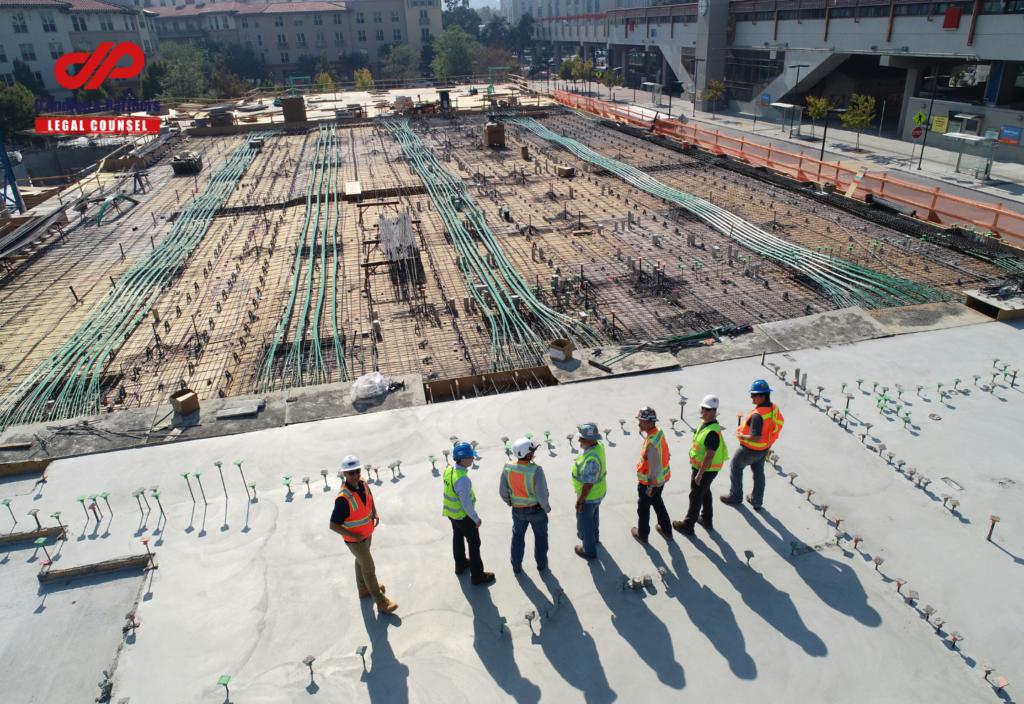In February 2024, Vietnam adopted a new Construction Industry Development Strategy for 2030 – 2045, aiming to boost the construction market, especially in urban infrastructure and housing. The strategy prioritizes key infrastructure projects in major cities and sets ambitious goals for housing construction, including doubling urban housing rates by 2030 and building 1,000,000 housing units for low-income groups. To achieve these goals, the strategy emphasizes international cooperation to attract resources.
This aligns with Vietnam’s current development direction, attracting foreign investors already active in the market. For instance, FDI investors have contributed to projects like Hanoi and HCMC metros, with notable companies such as the Chinese 6th Railway Division, the Joint Venture between the South Korean Hyundai and the Italian Ghella, and the Japanese Shimizu-Maeda involved. Luxury apartment complexes and urban towns such as Season Avenue and StarLake projects have also been built by foreign investors in Hanoi, including projects by CSCEC (China) and Daewoo E&C (South Korea), showcasing Vietnam’s investment potential in construction.
With the adoption of the Construction Strategy, it is expected that the aforementioned construction sectors will continue to attract even more investors to Vietnam.
How can a foreign constructor establish its presence in Vietnam?
Under the laws of Vietnam, there are three ways to set up a foreign presence, which are:
- Establish economic organizations (Law on Investment 2020), namely a Limited Liability Company (LLC);
- Establish a Project company under a Public–private partnership (PPP) with Vietnam government (Law on Public – Private Partnership 2020);
- Establish representative offices (Rep Office) (Law on Commercial 2005).
Between all of the above presences, Rep Office and PPP are the most popular options among foreign companies interested in investing into Vietnam construction market.
The reason of this reality is: while Rep Office is the ideal presence for foreign companies who want to gain a better understanding on Vietnamese market before committing to larger investments, setting up a PPP is chosen due to being the only channel to access urban infrastructure projects, and the risk is shared between the state and the investor.
However, drawbacks must be weighed when choosing the best option for foreign investors.
In fact, some drawbacks of PPPs and Rep Offices are:
Activity Limitations: Both PPPs and Rep Offices face restrictions in the Vietnamese market. PPPs are limited to signing and executing PPP contracts and are not permitted to engage in other business activities.[i] Similarly, Rep Offices are only allowed to conduct limited tasks such as market research, contract management, and relationship building, without the ability to directly engage in business or generate revenue. [ii]
Legal Constraints:
PPPs often face complex approval processes, involving negotiations, pricing, and state and partner approvals, which can be time-consuming and costly. Rep Offices, being reliant on their parent foreign companies, are not considered independent legal entities and must operate under their parent’s authority. [iii]
Overall, while PPPs and Rep Offices are common forms of presence, they have limitations on investing in various sectors in Vietnam. This includes missing out on opportunities in the lucrative housing construction market, where establishing a Limited Liability Company (LLC) could offer greater profit potential.
Instead, the biggest advantages of setting up an LLC in Vietnam are:
- Expansion and development: Unlike PPPs and Rep Office, LLC is recognized as an independent entity in Vietnam, and can join Vietnam market freely to earn profits. Also, the owner has full ownership rights and the right to decide how to use the profits. Hence, this brings more flexibility and freedom in decision-making regarding business expansion.[iv]
- Still capable to join PPP contract: Establish a LLC does not make foreign investor loosing their opportunity to join state projects. The definition of PPP investors also include independent entity likes LLC.[v]
- Financial Risk Management: The shareholders of LLC is only obligated to financial responsibility within the scope of the contributed capital.[vi]
Besides the diverse forms of presence provided to foreign investors, Vietnam’s governance also offers multiple incentives to attract more international resources. Below, we’ll delve into notable incentives tailored for foreign investors in Vietnam’s construction market.
Firstly, let’s discuss the sectors within the construction industry that enjoy incentives. According to Decree 31/2021/ND-CP, the eligible construction sectors for incentives are:
- Construction, development of industrial complex infrastructure;
- Construction of social housing and relocation house;
- Construction of apartment buildings for workers in industrial zones, economic zones, dormitories for students, investment in construction of functional urban areas (including kindergartens, schools, hospitals) for workers.
Also noted that any construction conducted in difficult economic conditions and/or extremely difficult conditions is also eligible for receiving incentives.
As next, some of the incentives available for the Investors are:
Tax incentives: As regulated in Decree 218/2013/ND-CP, the determination of preferential tax rates will depend on each field and investment location. Possible preferential CIT rates / holidays may include:
- 10% CIT rate for the whole term of the project;
- 10% CIT for 15 years • 15% CIT for the whole term of the project;
- CIT holiday for the first four years and 50% reduction of CIT payable for subsequent five to nine years;
- CIT holiday for the first two years and 50% reduction of CIT payable for subsequent four years;
Imports duties: Following Decree 31/2021/ND-CP, import duty exemptions apply to building materials that cannot be domestically produced, machinery and equipment. Also, set of benefits can be available on the basis of multiple international trade agreements that Vietnam is now a party, such as CTPPP, AVFTA, AHKFTA.
Land Use Fee: In Vietnam, all land is collectively owned and managed by the state on behalf of the people. According to the Land Law of 2014, foreign entities must lease land from the state for their use. However, some incentives on land use fee are also made available for foreign investors. Certain rent exemptions for different periods can be available: whole term of the project, construction periods (up to 15 years). Determination of land use fee incentives will depend on the characteristics of each project and must be decided case-by case.
As last, to apply for the incentives, foreign investors can entrust local professionals such D’Andrea and Partners to prepare a land rent reduction or exemption dossier and submit it to the Vietnam General Department of Taxation.
In conclusion
The construction industry in Vietnam is a promising market, currently offering new opportunities for foreign investors with various incentives and diverse sectors, especially in infrastructure construction and housing development. To establish a presence in Vietnam, investors can choose from different legal forms, among which the most prominent and potentially profitable is setting up a Limited Liability Company (LLC).
In D’Andrea & Partners Legal Counsel we have authored innovative publications exploring Vietnam, produced in order to provide foreign investors and businesses with more practical guidance on how to do business in Vietnam, as it requires a specific context of the economic and legal framework of the country, including tailor made consultancy for the construction sector.
The above content is provided for informational purposes only. The provision of this article does not create an attorney-client relationship between D’Andrea & Partners and the reader and does not constitute legal advice. Legal advice must be tailored to the specific circumstances of each case, and the contents of this article are not a substitute for legal counsel.
[i] Article 44.1, Law on Public – Private Partnership 2020.
[ii] Article 30, Decree 07/2016/ND-CP.
[iii] Article 44.2, Law on Enterprise 2020.
[iv] Law on Enterprise 2020
[v] Article 3.1.18, Law on Public-Private Partnership 2020.
[vi] Articles 46, 74, Law on Enterprise 2020.











